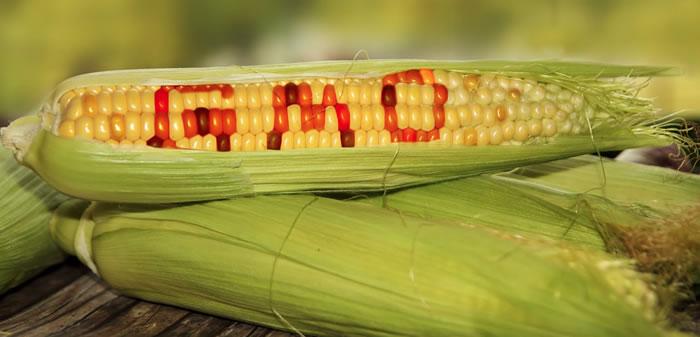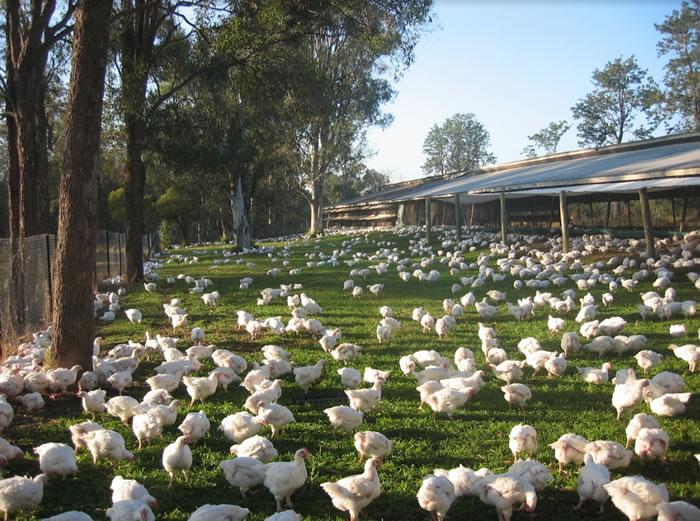
- Print this page
- Download as PDF
- Share this page
Some production methods must be declared on a food label, eg. the use of additives.
A range of other production methods, such as free range, organic or vegan and those that are based on cultural or religious practices may be declared voluntarily. However, when they are declared, labelling laws apply.
Food additives
Food additives, both natural and synthetic, are used to make processed foods easier to use, or ensure food is preserved safely. All food additives must be approved by Food Standards Australia New Zealand (FSANZ) and declared in the ingredients list on a food label.
See > Production methods > Additives
Genetically modified
Genetically Modified (GM) food - including ingredients, additives or processing aids that contain novel DNA or protein - must show the words ‘genetically modified’ on the label.
GM information can be found next to the name of the food or an ingredient in the ingredients list. If the food is unpackaged, the GM information must be displayed close to the food at the point of sale.
However, there are some exceptions and GM labelling is not required if:
- the GM food does not contain any altered characteristics meaning the food is exactly the same as the non-GM food
- the flavours containing novel DNA or protein are in a concentration of no more than 0.1%
- there is not more than 1% (per ingredient) of an approved GM food unintentionally present as an ingredient or processing aid in a non-GM food.
Claims such as ‘GM free’ and ‘non-GM’ are made voluntarily by food manufacturers and subject to Australian Consumer Law. Labelling is also required when genetic modification results in an altered characteristic in a food. See the FSANZ website.

Organic
Descriptions like 'organic', 'bio-dynamic', 'biological', 'ecological' or similar words can be used on any food sold on the domestic market.
Generally they refer to food that has been grown or produced without any contact with artificial fertilisers and chemicals.
There is no mandatory requirement for the certification of organic products sold in Australia however, products labelled ‘certified organic’ must be certified by an Australian certification organisation and carry a symbol or trademark to indicate it has met the necessary requirements.

Beef descriptions
Standard retail descriptions for uncooked, fresh beef help consumers know more about what they are buying and choose cuts that best suit their requirements.
Standard descriptions
| Standard retail description | Approximate age at processing |
|---|---|
| Yearling | 18 months or less |
| Young | 18 months or 2.5 years |
| Intermediate | 2.5 to 3 years |
| Mature | 3 to 3.5 years |
| Economy | 3.5 years or more |
‘Beef’ can be used in place of any retail description except ‘economy’. Approved grading schemes have their own terminology and don’t have to use these descriptions.
Generally, younger means more tender, and flavour increases as the animal gets older. The cooking method and the cut can significantly affect tenderness and flavour.
Some descriptions are not allowed
These descriptions have no standard meaning and are not allowed:
|
|
Free range
'Free range' broadly indicates the animal or animal product, eg. eggs, has been produced in an open or free environment.
Free range meat certification in Australia is provided by private certification bodies. There are a number accreditation schemes for free range eggs. See > Understanding Claims > Free Range

Other methods
Some food labels include information about production methods that relate to people’s personal values or ethics, such as:
- religious reasons (eg. ‘kosher', 'halal’)
- environmental concerns (eg. carbon footprint labelling)
- animal welfare concerns (eg. ‘dolphin friendly’)
- human rights issues (eg. fair trade, child labour).
The Food Authority does not enforce these types of food labelling.
Businesses can voluntarily provide this kind of information on the labels of their food products, as long as the information is not false, misleading or deceptive under Australian Consumer Law.
